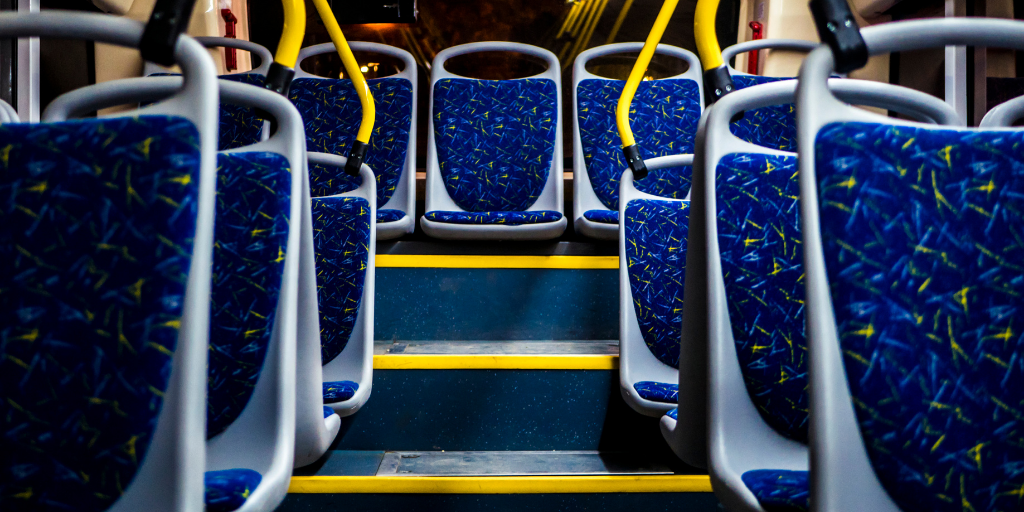The Honorable William Straus, House Chair
The Honorable Joseph Boncore, Senate Chair
Joint Committee on Transportation
State House, Room 134
Boston, MA 02133
RE: Support for Sen. Chandler S.2277 and Rep. Blais H.3413 (RTA advancement bills) – Vital for Gateway Cities and post-pandemic recovery
Dear Chairmen Straus and Boncore,
Thank you for the opportunity to testify about the regional transit needs of our state. I strongly urge you to report out the RTA advancement bills H.3413/S.2277 early this session. The case for better regional transit is straightforward: we need to help workers get to jobs, provide real transportation options to the many seniors and families without cars, reduce congestion and pollution, and meet our ambitious climate goals.
The pandemic has permanently changed the way many residents think about where they want to live and work. This offers an unprecedented opportunity for our Gateway Cities to reposition themselves as regional hubs, but this will only be possible if they become multimodal communities anchored by strong regional transit systems.
Unfortunately, the state has at times battled with the RTAs. Since the RTAs are the only major transportation agencies not controlled by MassDOT, this Administration has squeezed state funding as a method of influencing them. This may be done with good intentions, including attempts to incentivize better performance and more transparency, but it has resulted in annual revenue falling behind cost increases. The result has been a long stagnation of RTA service, and in many cases, cuts. The pressure that MassDOT puts on the RTAs to maximize their fare revenue can be counterproductive, provoking fare increases that led to ridership losses even before the pandemic.
It’s time to chart a new course.
The bills offered by Sen. Chandler and Rep. Blais (S.2277/H.3413) will:
• Ensure an adequate level of base funding for the RTAs and adjust for inflation each year;
• Direct 50% of Transportation Network Company (Uber/Lyft) fees to RTAs;
• Improve RTA oversight and governance through an RTA Council that enjoys increased rider representation;
• Ensures that MassDOT funds RTA capital projects at the same rate as for MBTA projects;
• Support electrification of RTA buses, a critical need with so many Gateway Cities being environmental justice communities; and
• Halt MassDOT’s practice of using the farebox recovery ratio to measure an RTA’s success.
At MassINC, my team and I are conducting a study of five Gateway City downtowns across the state, each of them served by a different RTA: Springfield, Fitchburg, Brockton, Haverhill, and Fall River. We find that even in these downtowns, which are the most dense, walkable parts of the city, up to half of the land is still dedicated to automobile uses, principally parking. This leads to inactive streetscapes that may feel empty and unsafe. It discourages pedestrians, which are also the shoppers that support local small businesses. You cannot have a vibrant, dense, exciting downtown centered on the automobile. Without better regional transit, we are stifling the economic development of communities outside the Boston area.
More than half of Massachusetts residents are served by RTAs, but the 15 authorities collectively receive only $90 million or so from the state compared to $1.4 billion provided to the MBTA. Of course the MBTA is one of the busiest and most complex transit systems in the country, but the point is that we shouldn’t be stingy with the rest of the state. A comparatively modest investment in RTAs will produce a significant bang for the buck. Places like Boston and Cambridge benefit from property taxes generated on top of incredible public transportation infrastructure, but smaller cities can also create prosperity and provide a good quality of life for a broad range of families if the state does its part.
Many low-income families can no longer afford to live in the Boston area and have moved to Gateway Cities across the state, where a lack of good transit may isolate them from jobs, services, and community. Transit and walkability make small cities attractive places to live and work, which brings more housing and jobs in a virtuous cycle. This is the only long-term way that we’ll relieve pressure on the hottest markets in the state and encourage new investment in places that need it. We’ll be able to support economically and racially diverse communities throughout the state that share prosperity.
Regional transit is a quality of life issue, an economic development issue, and a climate issue. I do not know any other investment of this scale that produces so many positive impacts across the Commonwealth and targets so well the people and communities that most need it.
Thank you for your attention and for your commitment to improving transportation for all Massachusetts residents. We encourage you to accelerate reporting S.2277/H.3413 favorably out of committee.
Please reach out with any questions or to discuss further.
Sincerely,
Andre Leroux
Consultant, Transformative TOD
MassINC
